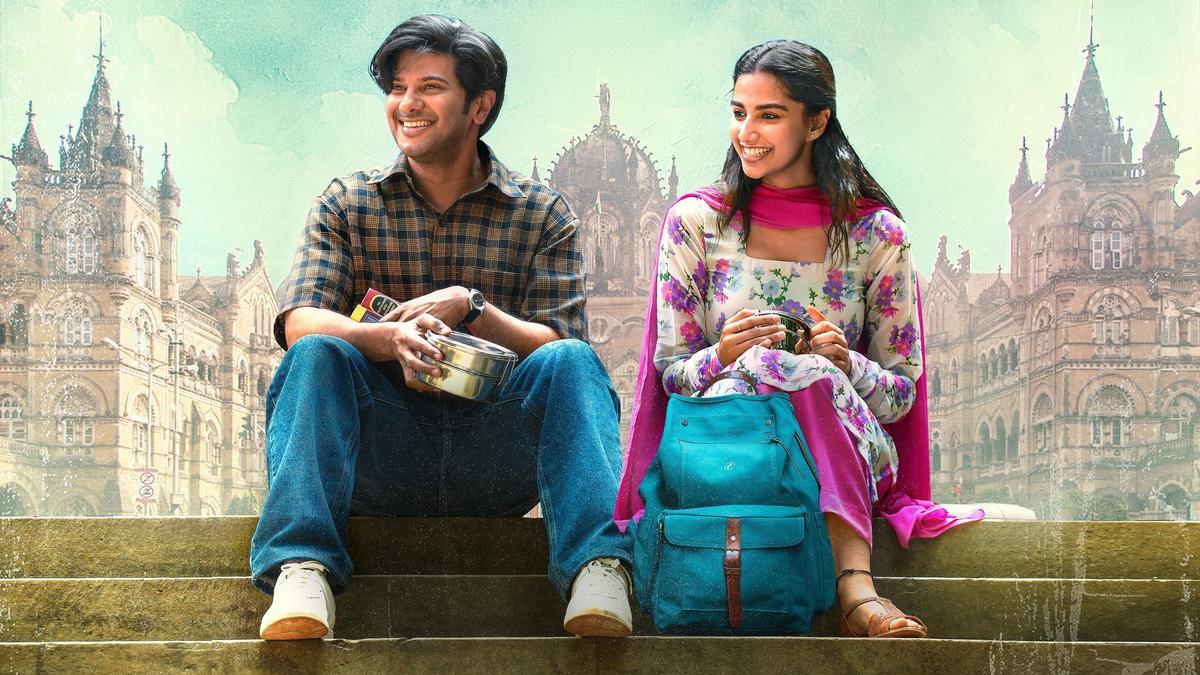
“Lucky Baskhar,” a Telugu film deftly crafted by director Venky Atluri, offers audiences a compelling blend of drama and intrigue by employing a unique narrative technique. This method, which builds tension before delivering unexpected twists and then rewinds to unveil the events that led to these moments, keeps viewers on their toes. The film takes its first narrative leap by introducing the titular character’s capabilities, setting the stage for what’s to come. While there’s a risk of this technique losing its impact if overused, the unfolding of these twists often elicits a joyful response from the audience. Set against the backdrop of a financial scandal, Atluri’s “Lucky Baskhar” is a hallmark in his filmography, driven by a stellar performance from Dulquer Salmaan, who effortlessly transitions from a struggling common man to an astute banker with his mind set on quick riches.
The film opens with Baskhar breaking the fourth wall, directly addressing the audience to narrate his journey. Banglan’s production design meticulously replicates a lower middle-class neighborhood in Bombay from 1989 to 1992, with Nimish Ravi’s cinematography capturing the narrow, crowded lanes and muted hues of the neighborhood’s walls.
In its initial phase, the movie treads a familiar path. Baskhar is inundated with responsibilities, tasked with supporting a large family that includes his wife, son, two siblings, and an ailing father, all while barely managing day-to-day expenses. He is perpetually in debt, unable to afford even simple street food like vada pav. The predictable outcome of this situation is Baskhar falling prey to a quick-money scheme. The screenplay during these segments over-explains Baskhar’s cunning maneuvers within the bank to ensure the audience fully comprehends the mechanics of his operations.
Alongside the financial plotline runs a relationship drama. Baskhar’s union with Sumathi, played by Meenakshi Chaudhary, is introduced alongside glimpses of their shared hardships, revealed through a well-crafted song sequence. This effectively sets up their backstory, bypassing the need for extended exposition. While some family members conform to archetypes, others, like the introspective father or the clever six-year-old son, offer unexpected depth.
The setting in the late 80s and early 90s allows for intriguing historical references, including allusions to infamous financial figures akin to Harshad Mehta, though altered creatively to fit the story’s fictional universe. Baskhar’s initial fraudulent activities are partly attributed to luck and the lack of ubiquitous surveillance characteristic of that time. However, as the film progresses, it delves into the intricacies of money laundering and further scams, showcasing Atluri’s sharp storytelling.
.
A pivotal moment arrives mid-film when Baskhar once again breaks the fourth wall, declaring that the story has truly just begun. From this point forth, Atluri accelerates the pace, delving deeper into the underbelly of financial corruption and the pervasiveness of complicity, from high-ranking bank officials to small traders. The script lays out these activities in an easily digestible format without being overly patronizing. Baskhar’s journey from humble beginnings to ostentatious displays of wealth is marked by increasing arrogance, while Sumathi strives to be the moral compass, challenging Baskhar’s choices.
Supporting characters are adeptly utilized to prompt Baskhar’s moments of introspection and self-doubt. Yet, having entrenched himself deeply in his schemes, the question remains whether he can extricate himself unscathed. The narrative rarely relents, ensuring Baskhar’s next move is always shrouded in mystery.
Dulquer Salmaan delivers an enthralling performance, adeptly portraying Baskhar’s evolution. His depiction ranges from the affable, middle-class man to a self-assured yet reckless figure as his fortunes improve. Salmaan’s portrayal is complemented by Archana Rao’s wardrobe, which visually charts this transformation, while subtle touches like grey hair strands signal his mounting stress. Whether delivering dialogues or conveying emotion through silence, Salmaan brings authenticity to his role with effortless grace. Meenakshi Chaudhary receives a well-rounded role and executes it with finesse, providing a counterbalance to Baskhar’s antics. The ensemble cast, including talent like Rajkumar Kasireddy, Maganti Srikanth, Hyper Aadhi, Ramki, Tinnu Anand, and Sachin Khedekar, contributes admirably to the film’s dynamics.
GV Prakash Kumar’s musical score punctuates the film effectively, though it sometimes prematurely hints at upcoming developments, potentially diminishing suspense. Nonetheless, a strategic musical shift in the final act reinstates intrigue.
“Lucky Baskhar” thoughtfully explores moral ambiguities and the importance of moderation without becoming didactic. Baskhar’s journey is a deftly told narrative of ambition, risks, and the quest for redemption. Now playing in theaters, it’s an engaging watch for those who relish drama infused with sharp storytelling.”












